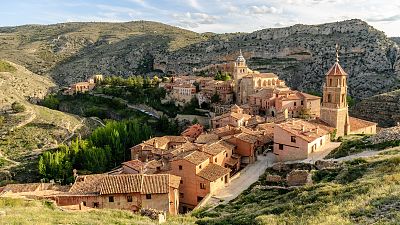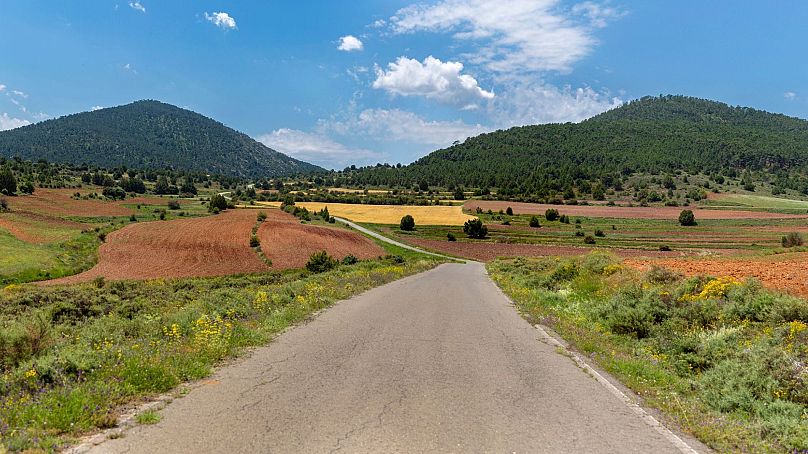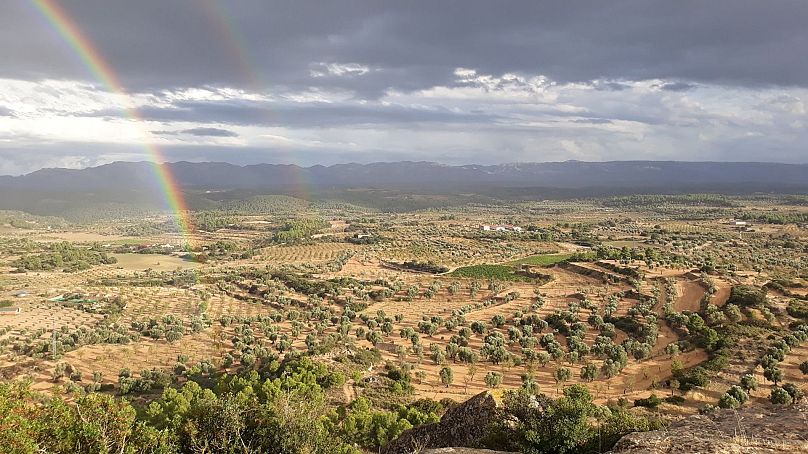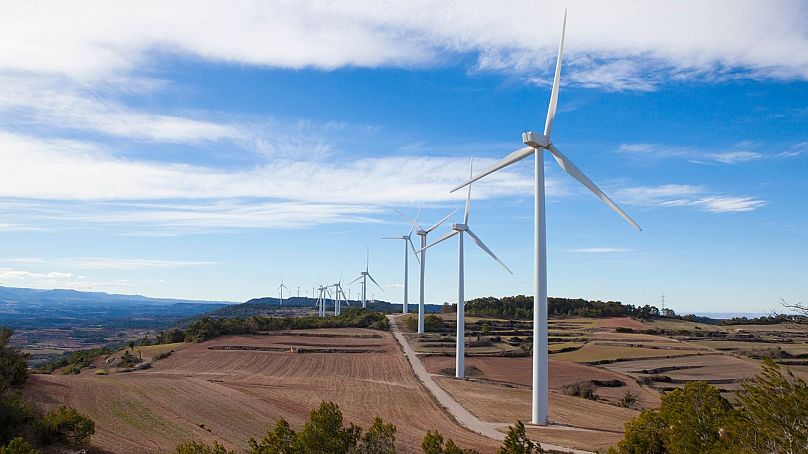30 December 2021

When during Spain's civil war in the 1920s and 30s the green glad fascists arrived in Albarracin a remote Aragonese hillside village their coming heralded the end of a way of life. Only very old people remember how as small children they spoke a native language - a mix of Catalan and Spanish known locally as chapureáo. That, another languages, such as the one now revived in the Basque region on modern Spain's north west coast, were banned by the Falangist regime of Il Caudillo, General Franco. The single language policy, like others which aimed to crush regional identity and culture, was intended to handicap the resistance. The dictator also tried to break up rural communities and marginalise dissidents living in the countryside.
This was the first of. a series of policies constructed to drive of people out of the countryside and into cities and conurbations. The trend continues today, not just in Spain all over Europe, notably in France and Italy. However Spain is the nest national community to use as an example as the nation was somewhat bypassed by the first stages of the industrial revolution and in years after World War One still had a largely peasant economy. Whether Spain's ruling elite have been desperately playing catch up out of an altruistic desire to see the people share the same levels of prosperity as have been enjoyed by the people of other large, commercially developed European Nations, or are simply crapping on the poorest citizens because that is what ruling elites do best, this push towards urbanisation has led vast swathes of rural Spain being depopulated and formerly thriving, sustainable communities becoming ghost towns. The result is what is now referred to as España Vacía, or Empty Spain.
The old people, well some of them ast least, remember how parents, uncles, aunts and family friends continued to speak chapureáo in the privacy of their homes, to teach their children the folk lore an'd family histories of their region, to read forbidden literature in secret, to keep their lives, memories, culture and values alive by living half their lives 'off - radar.
Calaceite is another small Spanish town in the 'Empty Spain' Matarranya region of Teruel, a state which a decade ago was forced to remind the rest of Spain it was still there by running a marketing campaign called Teruel SI Existe (Teruel DOES Exist).
Teruel is comfortably the least populated state in Spain, known predominantly for black olives (Aragonesas), olive oil and almond production - as well as for the fact that few people live there and nobody goes to visit.
The Empty Spain regions are an extreme
example of modern depopulation, but Spain is by no means alone, with an
estimated 90 per cent of Spain;s available land having undergone a mass
exodus of population, particularly young people in the middle of the twentieth century. Goveernment and European Union social engineering policies encouraged this internal movement, apart from cost-benefit reasons
governments were also able to benefit economically by cutting services and resources allocated to these rural
areas, an act which in turn drove more people to the cities, and
continues to do so. As well as the obvious economic benefits however, there are political benefits, especially to regimes with authoritarian tendencies. A more tightly packed population is easier to control and manipulate, and members of urban populations are more likely to depend on welfare benefits and government services, which can be weaponised to coerce dissidents and malcontents to comply with human rights violating policies as we have seen in the way some countries have used vaccine passports to coerce citizens into accepting the clotshot.
****
To the industrial, holistic eye of government mechanics, these rural areas are now empty of society - a kind of terra nullius, and must be made to contribute to the national economy in other ways. Perhaps the biggest window of opportunity seen by successive governments across the political spectrum has been to open up these territories for the development of vast wind farm complexes.
The truth is, however, that Empty Spain is not empty at all, and continues to house historic communities across its territory, many of which have now developed themselves into models of local, sustainable economies - communities which in the national debate are struggling to get their voices heard.
Spain’s appetite for wind
Spain’s national energy demands are currently being fed by a variety of sources, but none is greater in importance than wind.
In 2021, according to the Spanish National Grid (Red Eléctrica de España), wind accounted for a quarter of all electrical production, and is growing one percentage point per annum.
This year, for the first time in the country, energy provided by wind overtook nuclear power.
In a European context, Spain’s wind production is second only to Germany, and currently runs at over 21,000 wind turbines, a statistic escalating weekly as the industry has been designated by the government as being a core driver of the COVID economic recovery.
Proponents of wind generally state that it is a form of clean energy crucial to meeting the nation’s climate goals, that Spain has space and wind aplenty, and that its cities’ needs must be met from somewhere.
Critics, on the other hand, are frustrated that in a time of climate change, the focus continues to be on satisfying insatiable urban appetites for energy instead of supporting more sustainable models of community living.
And, more than anything, they argue that for these parks to be built they require local consent, rather than imposition from central government in Madrid, something anathema to the standard operating procedure of mega industry, globally.




No comments:
Post a Comment